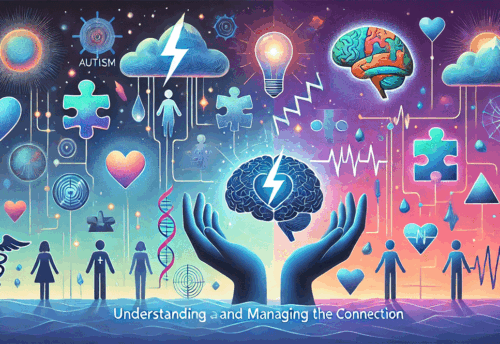
Anxiety and Autism
Understanding Anxiety and Autism
Anxiety is a prevalent concern among autistic individuals, significantly impacting their daily lives. Understanding the interplay between anxiety and autism is crucial for effective management and support.
Prevalence of Anxiety in Autistic Individuals
Research indicates that approximately 50% of autistic individuals experience anxiety that substantially affects their daily functioning.
In the UK, a survey by the National Autistic Society found that 94% of autistic adults experience anxiety, with over 50% having a clinical diagnosis.
Understanding Anxiety Disorders
Anxiety disorders encompass conditions characterized by excessive fear or worry, including generalized anxiety disorder, social anxiety disorder, and specific phobias. These disorders can lead to physical symptoms such as increased heart rate, sweating, and restlessness, as well as psychological symptoms like persistent worry and difficulty concentrating.
Anxiety and Autism
Autistic individuals may experience anxiety differently from the general population. Factors contributing to heightened anxiety in autistic people include:
- Sensory Sensitivities: Overwhelm from sensory stimuli can lead to increased anxiety.
- Difficulty Recognizing Emotions: Challenges in identifying and understanding one’s own emotions can exacerbate anxiety.
- Uncertainty: Difficulty coping with unpredictability or changes in routine can trigger anxiety responses.
Self-Managing Anxiety for Autistic Individuals
Autistic individuals can adopt various strategies to manage anxiety:
- Develop Self-Advocacy Skills: Understanding and communicating personal needs can help navigate different settings and reduce anxiety.
- Engage in Stress-Reduction Activities: Regular exercise, meditation, and hobbies can alleviate stress and anxiety.
- Sensory Management: Identifying sensory triggers and implementing coping mechanisms, such as using noise-cancelling headphones or creating sensory-friendly spaces, can be beneficial.
Support from Others
Support from family, friends, and professionals is vital in managing anxiety:
- Professional Support: Therapies like cognitive-behavioral therapy (CBT) can be effective in addressing anxiety in autistic individuals.
- Educational Support: Schools and workplaces can implement accommodations to reduce anxiety triggers, such as providing clear routines and sensory-friendly environments.
- Community Support: Support groups and community resources can offer shared experiences and coping strategies.
Understanding the unique experiences of anxiety in autistic individuals is essential for developing effective management strategies and providing appropriate support.





Leave a Reply